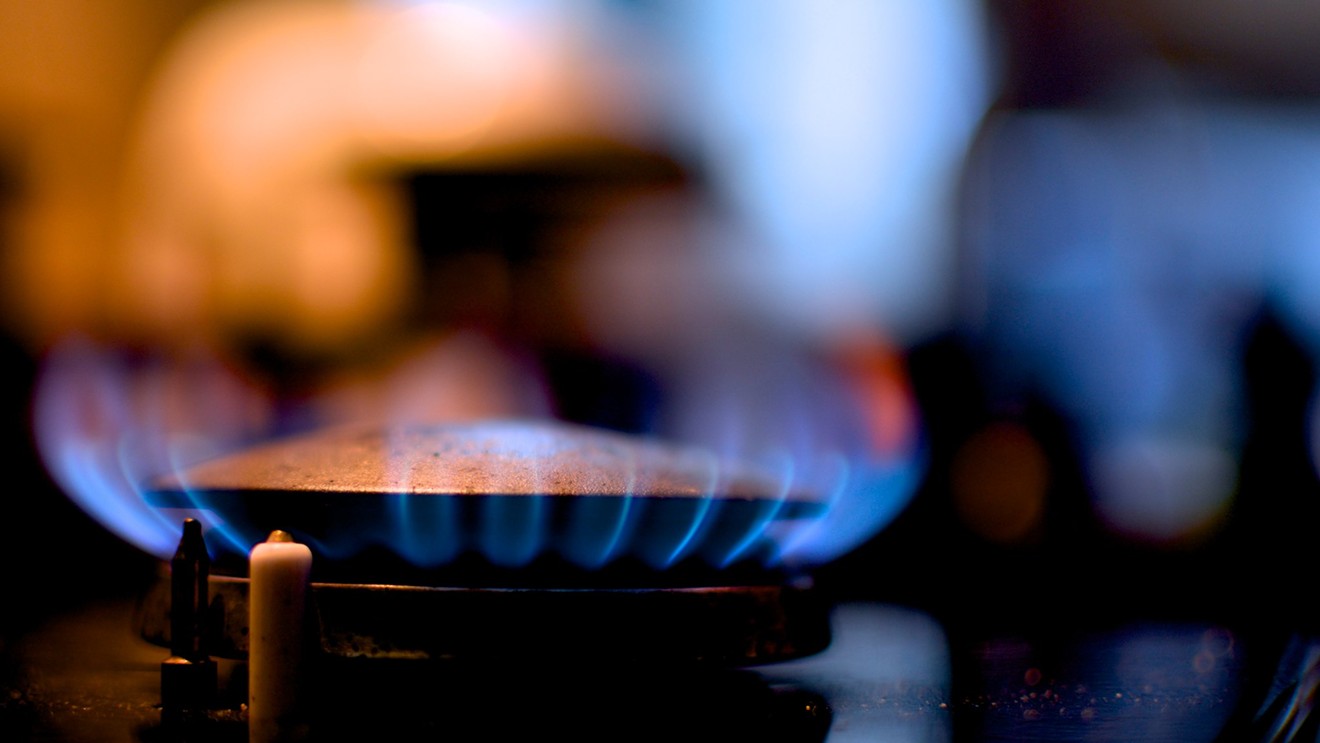The list of ways that the state of Arizona can stop local governments from governing locally is poised to grow a bit longer.
A gas-industry-backed pre-emption bill that would effectively bar local governments from trying to mitigate climate change by targeting certain utilities has landed on the desk of Arizona Governor Doug Ducey. An amended version cleared the state House of Representatives and the Senate last week.
The bill, copies of which sped nearly simultaneously through the House and the Senate, was backed by Southwest Gas. It comes as more than a dozen cities and towns in other states have begun to deter or simply ban natural gas hookups in new construction, in an effort to fight climate change.
Patrick Ptak, a spokesperson for Ducey's office, said Tuesday afternoon that the governor had received the bill. "We will let you know of any action from the governor after he’s had the chance to be briefed on it," he said.
If Ducey signs the bill, it would prevent Arizona cities or towns from charging higher fees or limit permits for buildings that use certain utilities, like gas.
Phoenix and Tucson, the state's largest cities, both have opposed the bill, saying it would hinder local governance. Other critics of the bill include environmental groups, which say that the bill would curb local efforts to encourage clean energy and improve air quality.
Cities and towns “may not deny a permit application based on the utility provider proposed,” the bill reads. Municipalities are also forbidden from passing code or ordinances that could “have the effect of restricting a person’s or entity’s ability to use the services of a utility provider.”
To the gas industry, such policies represent an existential threat.
The American Gas Industry, of which Southwest Gas is a member, was caught off guard by those changes in California, Massachusetts, and elsewhere last year, S&P Global Market Intelligence reported in late January, and has begun working to counter them.
More than half of Southwest Gas's 2 million or so customers are in Arizona. Last year, 53 percent of its profits came from Arizona, and the rest from California and Nevada. It is approaching the final stages of finishing a storage facility for liquid natural gas in southern Arizona, according to a spokesperson.
As of last year, it had poured $27 million into that facility, according to federal filings.
“We believe this measure is an important step ensuring Arizonans have consistent access to balanced energy solutions that are efficient, affordable, and clean,” Amy Washburn, a spokesperson for Southwest Gas, told Phoenix New Times via email.
No cities or towns Arizona are developing bans on natural gas, but the industry is evidently determined to prevent that possibility, however remote.
Last year, Southwest Gas or its political action committee donated $4,500 to Arizona Senate President Karen Fann and House Speaker Rusty Bowers, each of whom introduced the industry-backed bills in their respective chambers.
Natural gas is a fossil fuel that the gas industry has framed as being cleaner and less harmful to the environment than its cousins, coal and oil, which emit far more carbon dioxide when burned. And researchers have indeed found that using natural gas instead of coal has helped reduce pollution in the energy industry in the U.S.
But natural gas has considerable environmental impacts of its own, and studies suggest that natural gas is not necessarily better for the environment than other fossil fuels.
According to the Union of Concerned Scientists, natural gas leaks methane, one of its components, during transportation.
Methane is dozens of times stronger than carbon dioxide at trapping heat. And while burning it produces fewer pollutants than burning oil and coal, obtaining the natural gas itself through destructive methods like fracking has created health problems for people in surrounding communities and damaged nearby ecosystems.
U.S. dependence on natural gas to produce electricity is projected to rise in the coming decades. In 2012, it accounted for 31 percent of the electricity generated in the U.S., compared to coal's 37 percent. By 2050, according to the Union for Concerned Scientists, natural gas will produce 56 percent of the U.S.'s power.
[
{
"name": "Air - MediumRectangle - Inline Content - Mobile Display Size",
"component": "18478561",
"insertPoint": "2",
"requiredCountToDisplay": "2"
},{
"name": "Editor Picks",
"component": "16759093",
"insertPoint": "4",
"requiredCountToDisplay": "1"
},{
"name": "Inline Links",
"component": "17980324",
"insertPoint": "8th",
"startingPoint": 8,
"requiredCountToDisplay": "7",
"maxInsertions": 25
},{
"name": "Air - MediumRectangle - Combo - Inline Content",
"component": "16759092",
"insertPoint": "8th",
"startingPoint": 8,
"requiredCountToDisplay": "7",
"maxInsertions": 25
},{
"name": "Inline Links",
"component": "17980324",
"insertPoint": "8th",
"startingPoint": 12,
"requiredCountToDisplay": "11",
"maxInsertions": 24
},{
"name": "Air - Leaderboard Tower - Combo - Inline Content",
"component": "16759094",
"insertPoint": "8th",
"startingPoint": 12,
"requiredCountToDisplay": "11",
"maxInsertions": 24
}
]











